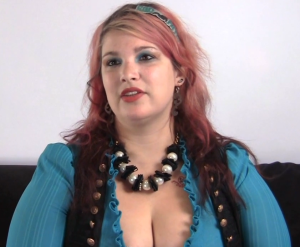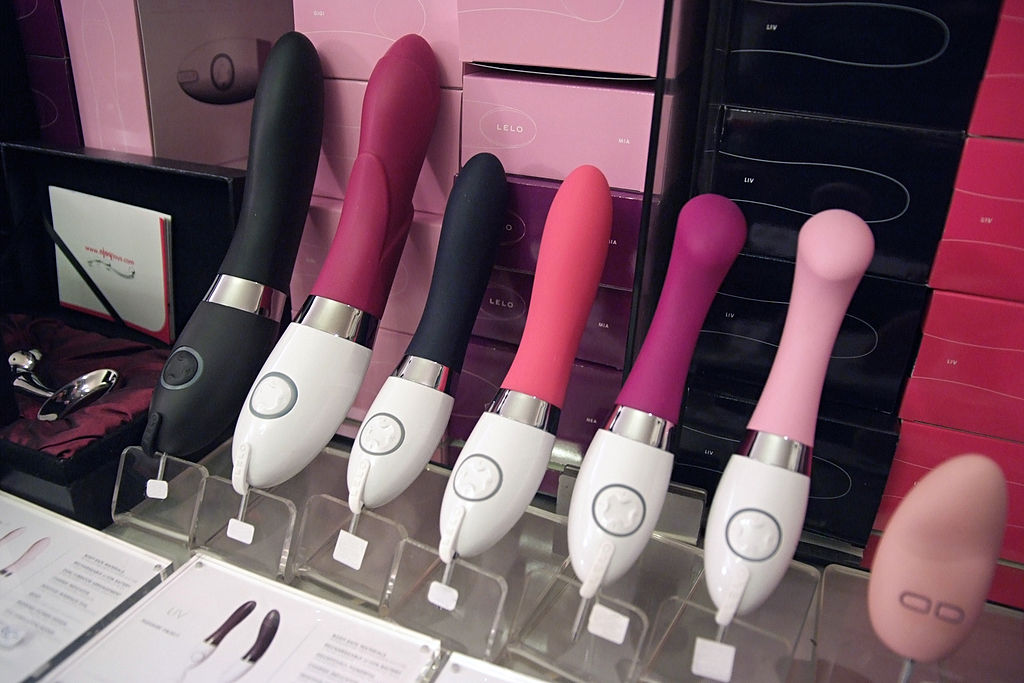I think that Kitty Stryker is one of the smartest and most honest people talking about sexuality these days. The below video shows why.
 I’m not in the same position as Kitty; I’m neither a sex worker, nor do I do sex education. Being seen as sexy isn’t part of my job requirement. But I do identify with a lot of what she says. The majority of “sex-positive” culture ((I know that there are a lot of people — including myself — who question the validity of that term, and whether it really means anything any more, but for lack of a better term that’s both colloquial and precise, I’m going to stick with sex-positive for right now.)) doesn’t talk enough about sexual fears and insecurities, and how to cope with them. Or, for that matter, how to accept that, as Kitty says below, being sexually “off” is part of our sexualities, too.
I’m not in the same position as Kitty; I’m neither a sex worker, nor do I do sex education. Being seen as sexy isn’t part of my job requirement. But I do identify with a lot of what she says. The majority of “sex-positive” culture ((I know that there are a lot of people — including myself — who question the validity of that term, and whether it really means anything any more, but for lack of a better term that’s both colloquial and precise, I’m going to stick with sex-positive for right now.)) doesn’t talk enough about sexual fears and insecurities, and how to cope with them. Or, for that matter, how to accept that, as Kitty says below, being sexually “off” is part of our sexualities, too.
I think that a big part of the problem — although by no means all of it — is how much of the structure of sex positivity is based on feeding commercial ventures. I have no problem with people feeding themselves, and I wish to hell that Kitty and others like her could go out there and make lots of money off their insights.
But for most people, “sex positive” is defined primarily by stores like Good Vibrations and Babeland, and if sex educators want to make money doing what they love, they have to market themselves to those stores. And frankly, much like their more masculine predecessors in the Playboy and Penthouse empires, modern sex stores tend to market masturbation and fucking as a panacea for what ails you.
The result is that being “sex positive” often means that we wind up in a massive competition to look sexier, be kinkier, be more adventurous, and always be on. The truth is that sometimes, a truly positive model of sexuality looks really boring from the outside. Those parts don’t look good in a catalog, and don’t market well, but they’re really important. Sometimes, what you need isn’t kinky, or adventurous; it might be that after a lifetime of open relationships, you need monogamy. Maybe instead of the ropes and whips, you need to relax and make out. Or maybe, as Kitty is saying, sometimes being positive about your sexuality means saying that you don’t feel like sex at the time.
Truthfully, I relate strongly to this video because the last few years, I’ve been struggling more and more to feel positive about my sexuality. The black dog has been gnawing at me more and more, and that takes a big toll on how I feel sexually. And like Kitty, if I can’t keep up with my younger self, either mentally or physically, that just perpetuates the cycle. And sometimes, being around sex-positive folks just makes that worse. Just as an example, on Saturday, I went to a studio-warming party for an indie queer porn company. I had a great time. I saw a lot of people I know and like, there were some great performances, and my partner got a lapdance that left her glowing all the way home.
But the snake in the garden, so to speak, was that I kept looking around at all these sexy, charismatic, and brilliant people, and feeling a little murmur in the back of my head say: “None of these people would want to fuck me.” I think that most of us hear that whisper from time to time, but when you hear it in the middle of a community that’s so heavily based on people being sexy, energetic, and adventurous, it just digs that much deeper.
I’d like to see much more honesty like Kitty’s in alt-sex circles. It would make the difference between whether our communities are part of a radical political movement or just another way to sell stuff.
Kitty on Having Bad Sex from Sex is Back on Vimeo.

About Chris Hall
A somewhat nerdy pervert who looks (mostly) normal on the outside, Chris Hall is fascinated by the politics, culture, and art of sex. He has written for The Atlantic, Alternet, SF Weekly, Slixa, numerous anthologies, and a dog blog that will go discreetly unnamed here.



[…] Sex Isn’t Always Positive […]